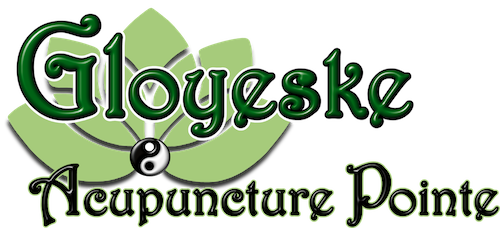This month’s “In Health” blog is, again, about the meridians/channels of the body. In this case, the Heart and Small Intestine will be discussed. This summary is, again, just to inform you with some brief, underwhelming information regarding these particular channels of the body. Last month, the Liver and Gallbladder were discussed, so if you’re interested in those channels feel free to check March’s blog out. I also discussed some basic differences in Yin and Yang. Also, an important aside on terms is needed before I begin. In graduate school, I had to write a lot of papers, which were great for learning and being able to explain “Traditional Chinese Medicine” to people. Now, to meet page number requirements (say 10 pages), the term “Traditional Chinese Medicine” was awesome. It took up a lot of space. When in doubt, add “Traditional Chinese Medicine” to the end of that sentence! Boom! Paper done. I’m no longer required to write papers of a certain length. So, for the sake of your eyes and my fingers, “Traditional Chinese Medicine” will be referred to as “TCM”. Again, this blog isn’t meant to scare you or cause you to over-analyze everything. It’s just a simple explanation of what acupuncturists look for. Again, don’t freak out if I say something is stressed/out of balance. Lets start after I digress!
I’ll start with the Heart, which is the Yin channel of the Heart and Small Intestine pair. The Heart, just like in Western Medicine, is the pump of blood or governs the blood. It’s considered the emperor of the body in TCM, which makes a lot of sense for obvious reasons. If the Heart doesn’t function properly, it affects the entire system. Another obvious note is that it controls the blood vessels. The fluid that is connected to the Heart is sweat. So, blood and water are very much intertwined. An easy example is how certain blood lab tests can come back false positive because someone is dehydrated at the time of the test. The Heart channel is said to manifest on the face. What this looks like is that if someone gets embarrassed easily or is really angry, his or her face will turn red. Obviously, this is emotion-related. There is a little more to this that I’ll explain in the next paragraph, so bare with me. It’ll make a little more sense in a second. The emotion that is associated with the Heart is joy. Now, all emotion will affect the Heart channel. Excessive joy may not seem like a bad thing, but you have to have your ups and downs in life. You need that healthy balance of emotions. The Heart is said to “open into the tongue”. So, if you get mouth/tongue ulcers or have trouble finding words, then your Heart channel is imbalanced. Long-term memory is also said to be controlled by the Heart channel.
My favorite aspect of explaining the Heart channel is that it is said to “control the Mind”, or Shen, in TCM. So, the connections above should be a little clearer. If someone is over-joyed, he or she will most likely be very talkative (hence the Heart/Mind/tongue relationship). If someone is angry, there face turns red because the Heart responded to the Mind’s thought by sending blood up to the face. If someone is having speech issues, it could be a Heart/Mind mix-up. It makes sense, right? Maybe not, but it does to me! All emotion affects the Heart and Mind, like I said earlier. Say you have just broken up with your long time boyfriend or girlfriend. “My heart is broken,” is a common phrase that comes to mind (pun not intended). Some people would say to get over it. However, in TCM, if you feel that way, then you think that way. It’s connected. The Mind affects the body, and the body affects the Mind. No brain/Mind = no life. No Heart = no life. Name one disease or condition that affects the mind and not the body, and vice-versa. There’s more to the Heart channel, but most of the time when I use Heart acu-points, it’s for patients with high blood pressure, palpitations, or emotional issues. Yes, if your acupuncturist looks at your tongue, he or she can tell if you’re having emotional issues related to the Heart channel even if you don’t tell them. It’s perfectly fine if you don’t want to tell us, too.
Anxiety is also related to the Heart channel. The channel, itself, runs from the armpit down to the pinky finger in the hand. So, if you get cold hands, anxiousness, an increase in heart rate, and armpit sweating when you feel that way, then there’s your long-awaited answer to your question as to why that happens! I run the risk of overwhelming you if I dive any deeper!
The Small Intestine channel is the Heart channel’s Yang paired channel. It’s responsible for absorbing nutrition and seeing things clearly in TCM. It also has a lot of cool effects on the Heart channel when you “choose to treat the Heart with the Small Intestine” in acupuncture. The Heart and Small Intestine work synergistically, as all channel pairs do. The Small Intestine channel can also influence the Du channel (spine) when combine with another point. It’s often used for back pain, neurological issues, and neck pain.
Ok, I think that’s enough for this one. I hope to see you soon!
In Health,
Adam Gloyeske, L.Ac.
